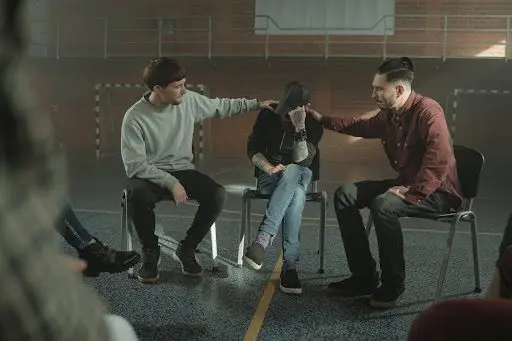Addiction and Family: How to Help a Family Member Who’s a Drug Addict

As drug and substance abuse rages on, addiction and family are becoming inseparable themes. Here’s how to help a loved one struggling with drug addiction.
Drug addiction in the United States has cost our country more than $740 billion annually. These costs are related to health care, crime, and lost work productivity.
In the 1990s, the epidemic we are facing now of death by drug overdoses started with prescription opioids. In 2010, the second wave of overdose deaths from heroin began. In 2013, the third wave of overdose deaths involving synthetic opioids began, most notably from illicitly manufactured fentanyl.
It’s important to keep an open line of communication with your children and family members. This way, they know they can talk to you and trust you when they are experiencing any type of crisis in their life. Having a good support system is critical for anyone who is having a difficult time.
When you suspect your loved one has a drug addiction and family members pull together, there is hope. Consider seeking support from the specialized opioid withdrawal treatment at ANR Clinic to guide you through this challenging journey. Keep reading to learn what you can do to help.
Where Do You Start?
When someone you love is struggling with drug addiction, it can be confusing and stressful. It’s important to understand that the person you love is suffering from the disease of addiction.
Their behavior changes because they are under the influence of this drug, and they are not themselves.
You need to start a conversation with your loved one to ask them face-to-face if they have a drug problem. If this person has stolen from you, been disrespectful, or lied to you, your first reaction is to be angry.
You should approach them instead with compassion and kindness. If you lash out at them, they are likely to become defensive, and they won’t listen to you at all.
Having That Talk
When first confronted about their suspected drug abuse, a person often becomes angry and denies there is a problem. It’s important to learn as much as possible about addiction and the treatment options available.
When you initiate the first conversation with your loved one, try not to have it while they are under the influence of the drug. Discuss the behavior that you have observed and why it is worrisome to you. Let them know you are concerned for their safety and well-being.
This could be the first time this person has thought about having a problem, so don’t expect things to change overnight. Or they may have tried to quit and found that they can’t.
If they confide that they are struggling to stop using, you can suggest treatment options.
Once you have this talk, you must set boundaries and be sure not to enable the user. This can get them past the denial stage faster so they will accept treatment.
Intervention
You could stage an intervention. It’s important to have professional guidance to keep emotions in check and maintain control of the situation.
Be sure that close family members who have been directly affected by the addiction are present and others who care about the addict.
If your loved one consents to treatment, it’s important to support them throughout the entire process. They will have to detox to get through the worst of the withdrawal symptoms.
If they are addicted to heroin or opioids, there are suboxone doctors who can set up a managed maintenance program to ease withdrawal symptoms.
A structured treatment and recovery program after detox offers the best chance for success.
Addiction and Family After Treatment
This is often the hardest time for a recovering addict. The strategies they have learned in treatment will now need to be put to use.
Family therapy is an option. This can allow everyone to speak about concerns and frustrations so the family can begin healing.
When a loved one is experiencing addiction, and family members pull together to help, this can result in a lasting recovery.
Although there will be challenging times ahead, learning all you can about addiction and treatment options can put your family on the road to recovery. You can check out our blog post to learn the best methods for supporting a family member going through the recovery process.









